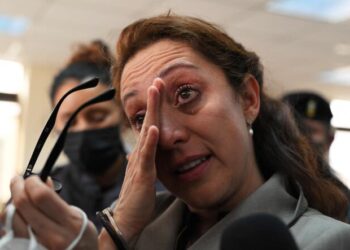Human Lives Human Rights: Authorities in South Sudan have arrested civil society activists and a politician and closed down a radio station and an academic think-tank, signaling a new wave of repression in response to calls for peaceful protests, said global rights group Amnesty International.
Arbitrary arrests and other measures come after the People’s Coalition for Civil Action (PCCA), a recently-formed umbrella group of government critics, called for peaceful country-wide protests on 30 August to force the government to step down, citing “failed leadership”.
Rights groups urge that peaceful protests must be facilitated rather than cracked down upon or prevented with arrests, harassment, heavy security deployment or any other punitive measures.
“We are witnessing a new wave of repression emerging in South Sudan targeting the rights to freedom of expression, association and peaceful assembly,” said Deprose Muchena, Amnesty International’s Regional Director for East and Southern Africa.
The Minister of Information, Communication Technology and Postal Services said in a media interview that the government “prevented it [the protest] … to have a peaceful South Sudan”, arguing that any demonstration calling for change in leadership is not peaceful.
The country’s National Security Service (NSS) arrested Kuel Aguer Kuel, the former caretaker governor of Northern Bahr el Ghazal State and one of the PCCA’s co-founders in the capital, Juba, on 2 August. The authorities continue to hold him at Juba Central Prison with very limited access to his family.
He has been charged with five offenses against the state including subverting constitutional government; insurgency, banditry, sabotage, or terrorism; causing disaffection among police force or defence forces; publishing or communicating false statements prejudicial to Southern Sudan; and undermining authority of or insulting the president.
Two other co-founders, Ibrahim Awolich and Rajab Mohandis, went into hiding in fear of arrest. The authorities also closed down the Sudd Institute, a think-tank Awolich works for.
Rights groups have documented an increase in arbitrary arrests across the country in the days leading up to the planned protests. Between 25 and 28 August, four more men were arrested in the southern town of Yei, including a bishop, on suspicion of supporting the PCCA and mobilizing people to take part in the planned protests.
They are held in a Military Intelligence detention facility and were charged with treason, a crime punishable by death under South Sudanese law, and with participating in a gathering with intent to promote public violence, breaches of the peace or bigotry.
Meanwhile, internet disruptions were reported which lasted until late afternoon of Monday, 30 August. Graphs published by network measurement experts, alongside media reports provide evidence of network disruptions.
The internet cut, which the Minister of Information, Communication Technology and Postal Services attributed to technical problems, ended coincidentally as soon as it was clear that the protests planned for 30 August had failed to take place.
Internet shutdowns and disruptions adversely affect people’s ability to exercise their rights to freedom of information, expression, association and peaceful assembly. The South Sudanese authorities and internet service providers must clarify their role in the disruption.


















